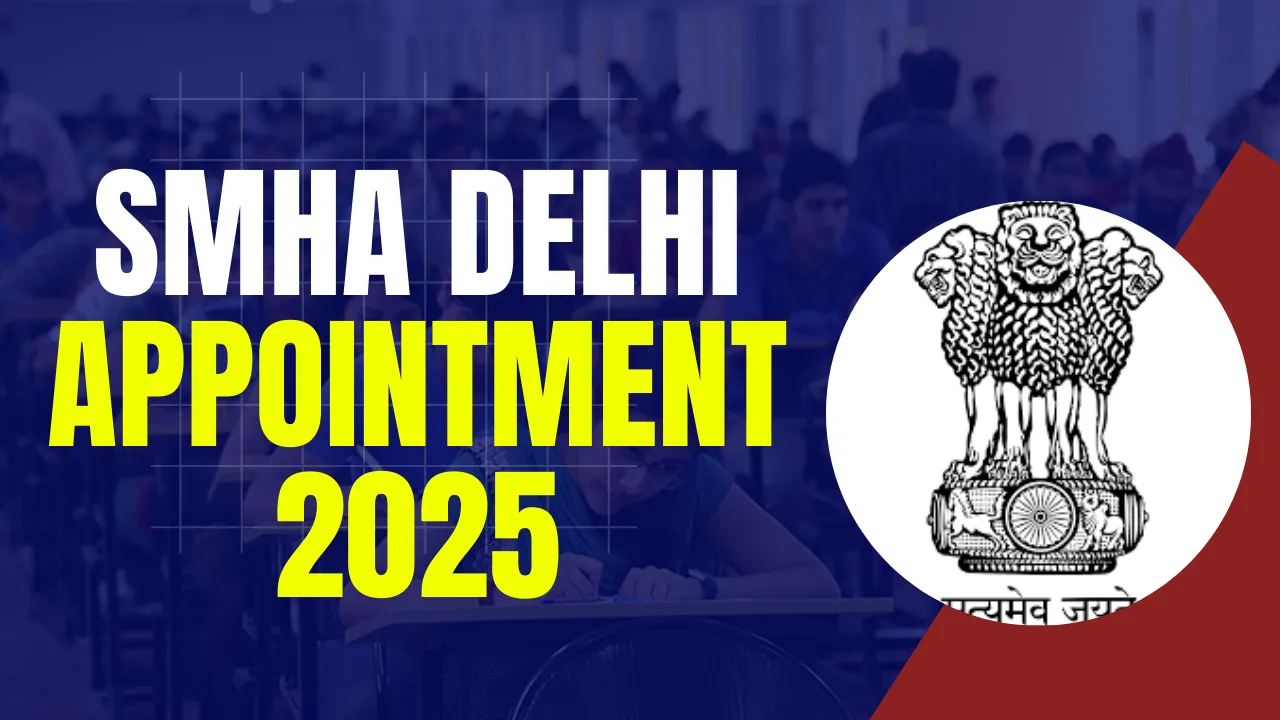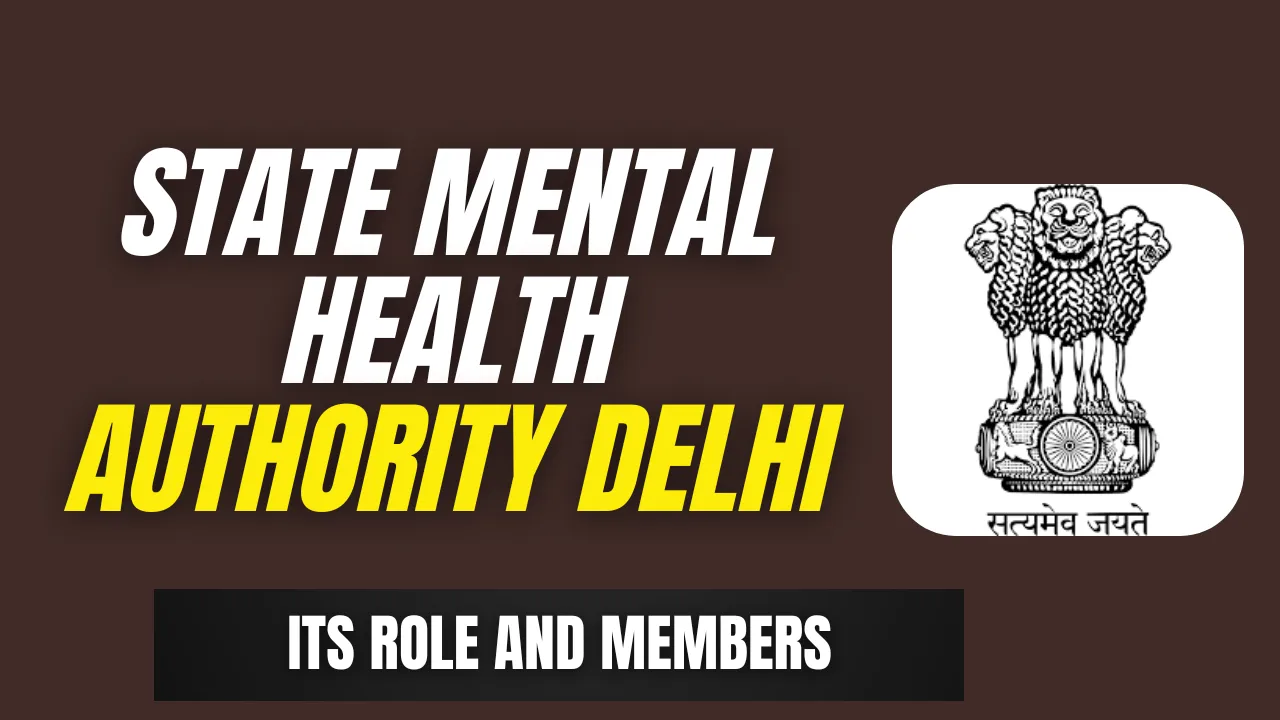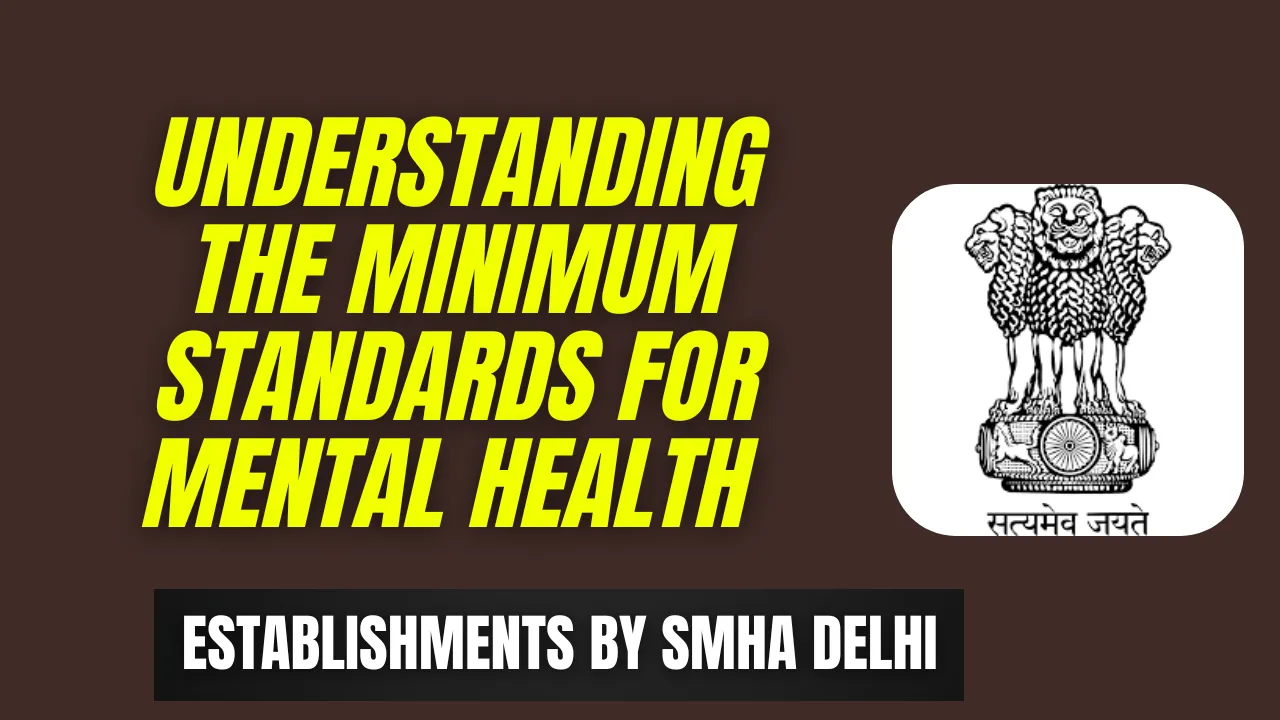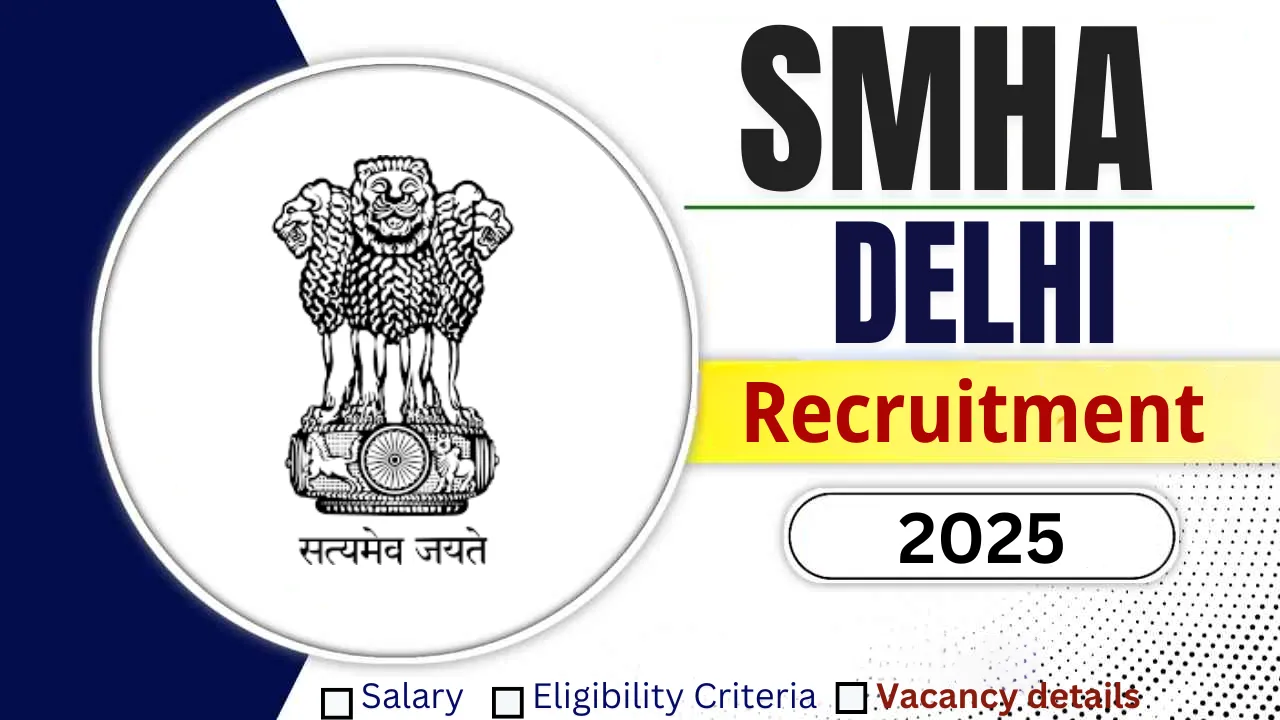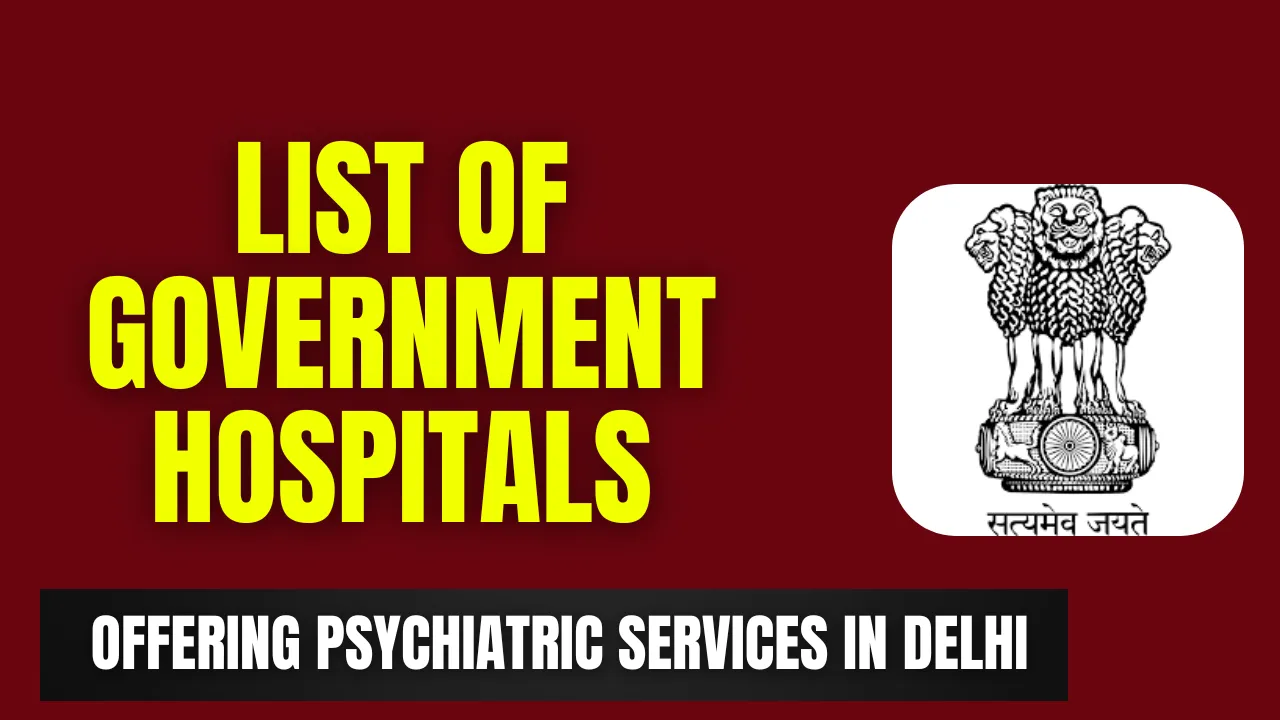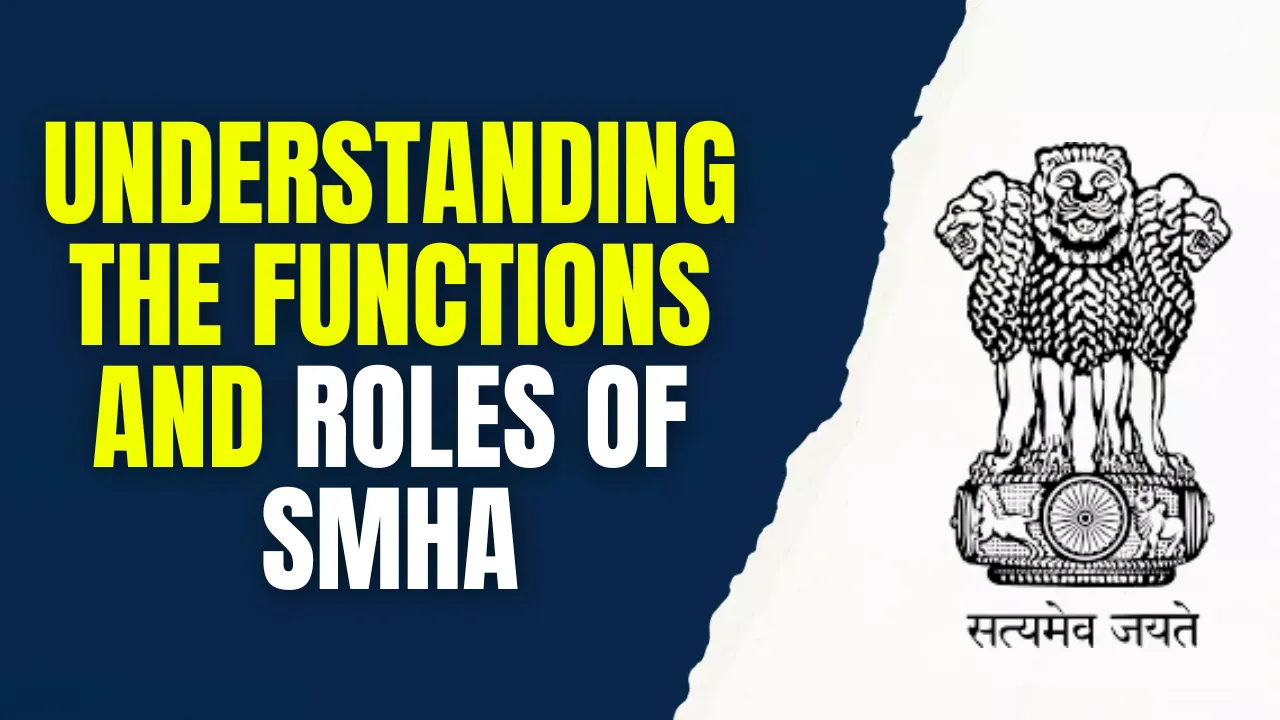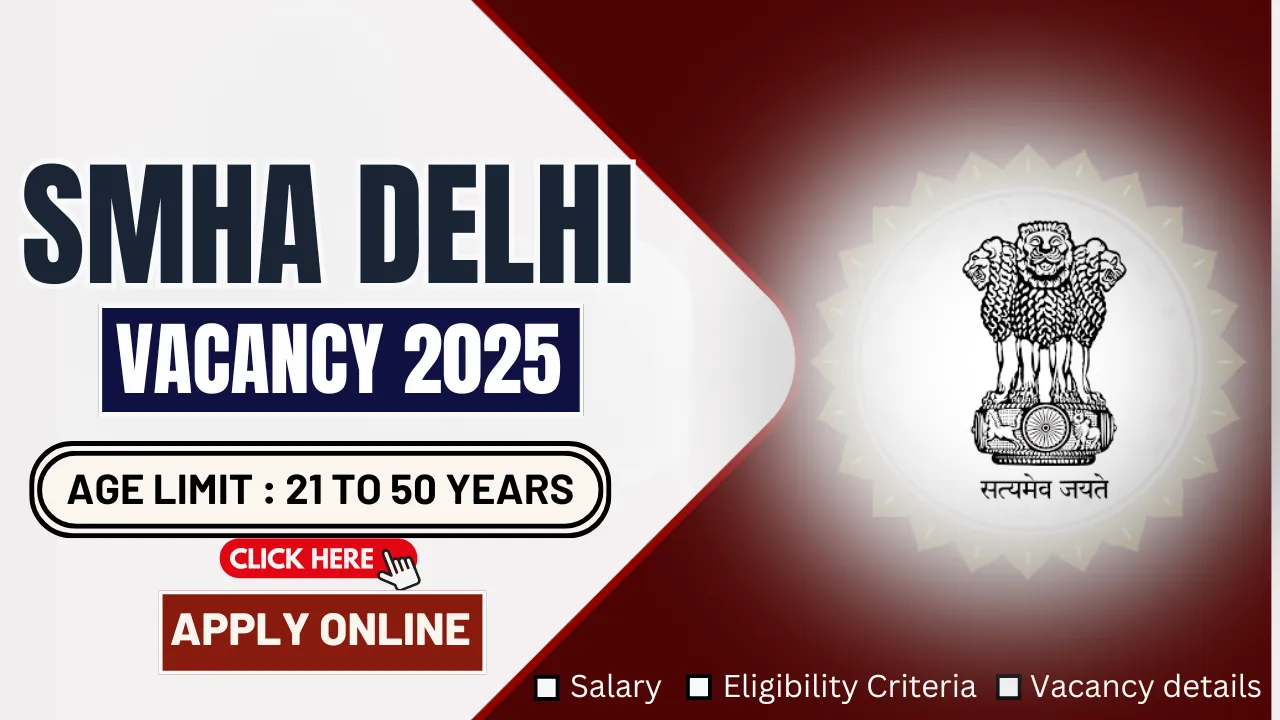SMHA Delhi Appointment 2025: The SMHA Delhi Appointment 2025 has become a significant focus following the Delhi High Court’s directive to the Delhi Government to quickly fill the vacant positions of non-official members in the State Mental Health Authority (SMHA). The court also emphasized the need to establish Mental Health Review Boards promptly, as outlined in the Mental Health Care Act, 2017. This decision stems from petitions that raised concerns about the delay in forming these essential bodies, which play a vital role in regulating mental health services in Delhi.
This article offers a detailed overview of the SMHA Delhi Appointment 2025, discussing the background of the case, the court’s key directives, the current status of appointments, and the potential legal implications of further delays. It also addresses some common questions about the ongoing recruitment process and what it means for the future of mental health governance in Delhi.
SMHA Delhi Appointment 2025 Overview Table
| Aspect | Details |
| Authority Involved | State Mental Health Authority (SMHA), Delhi |
| Key Directive | Swift appointment of non-official members and formation of Review Boards |
| Legal Framework | Mental Health Care Act, 2017 |
| Court Bench | Acting Chief Justice Vibhu Bakhru and Justice Tushar Rao Gedela |
| Petitioners | Amit Sahni and Shreyus Sukhija |
Background of the Case
The SMHA Delhi Appointment 2025 issue began with petitions filed by activist and lawyer Amit Sahni and co-petitioner Shreyus Sukhija. They argued that the Delhi Government had failed to comply with the Mental Health Care Act, 2017 by delaying the formation of the State Mental Health Authority and the District Mental Health Review Boards. The petitions pointed out that these bodies are crucial for monitoring and managing mental health services in Delhi.
The petitioners highlighted that the absence of these regulatory bodies was causing significant gaps in mental health governance. They stressed that the Act requires the timely formation of the SMHA and Review Boards to protect the rights of individuals with mental illnesses and ensure that mental health facilities operate according to the law. The court’s intervention was seen as a necessary step to enforce these statutory requirements.
Key Directives of the Delhi High Court
The Delhi High Court, led by Acting Chief Justice Vibhu Bakhru and Justice Tushar Rao Gedela, instructed the Delhi Government to expedite the process of appointing non-official members for the SMHA. The court’s order also included the swift formation of Mental Health Review Boards, which are essential for reviewing cases related to the treatment and rights of individuals with mental illnesses.
One of the notable aspects of the court’s directive was the emphasis that the upcoming Delhi State Legislative Assembly elections and the imposition of the Model Code of Conduct should not interfere with the appointment process. The court clarified that these appointments are a legal obligation under the Mental Health Care Act, 2017 and must proceed without delay. The bench also warned that any failure to comply promptly could result in further legal actions.
Current Status of Appointments
During the hearing, the Government of National Capital Territory of Delhi (GNCTD) presented a notification dated November 27, which announced the appointment of seven ex-officio members to the SMHA. This step was part of the compliance process but was not enough without the inclusion of non-official members, who are expected to bring specialized knowledge and expertise to the Authority.
The GNCTD’s counsel informed the court that an advertisement inviting applications for non-official member positions would be released soon. These positions are likely to be filled by experts from various fields, including law, mental health services, and medical sciences, to ensure a well-rounded and competent Authority.
Formation of Mental Health Review Boards
The Mental Health Care Act, 2017 mandates the formation of Mental Health Review Boards to safeguard the rights of individuals with mental illnesses. According to Sections 73 and 74 of the Act, these Boards must be constituted by the State Authority and include members with expertise in mental health, law, and administration.
The Review Boards are responsible for overseeing the admission, treatment, and discharge of patients in mental health facilities to prevent any violation of their rights. The GNCTD has assured the court that these Boards will be formed immediately after the SMHA is fully constituted. The court’s directive makes it clear that no further delays will be tolerated.
Legal Implications of Delay
The Delhi High Court’s warning about potential legal action underscores the seriousness of the matter. If the Delhi Government fails to comply with the court’s directives promptly, it could face contempt proceedings or other legal consequences. The Mental Health Care Act, 2017 has provisions for penal actions against authorities that do not fulfill their statutory duties, making it crucial for the government to expedite the appointment process.
The court’s stance also reflects the growing recognition of mental health as a critical public health issue that requires effective governance and oversight. By enforcing the timely implementation of the Act, the court aims to ensure that individuals with mental illnesses receive the care and protection they are entitled to under the law.
Reactions and Next Steps
The Delhi Government has indicated that it will comply with the court’s directives and expedite the appointment process. The assurance given by the GNCTD’s counsel suggests that the required advertisements for non-official member positions will be issued soon, followed by the formation of the Review Boards.
Observers expect that the government will act quickly to avoid potential legal consequences and to demonstrate its commitment to improving mental health services in Delhi. Candidates interested in applying for these positions should monitor official notifications and prepare their applications accordingly.
FAQs
What is the role of the State Mental Health Authority in Delhi?
The State Mental Health Authority in Delhi is responsible for implementing the Mental Health Care Act, 2017, overseeing mental health facilities, and ensuring that the rights of individuals with mental illnesses are protected.
Who can be appointed as non-official members of the SMHA?
Non-official members are usually experts from fields such as law, medicine, and mental health services. They are appointed based on their expertise and contributions to these fields.
What are Mental Health Review Boards?
Mental Health Review Boards are bodies established under the Mental Health Care Act, 2017 to review cases related to the admission and treatment of individuals with mental illnesses, ensuring that their rights are upheld.
Why did the Delhi High Court intervene in this matter?
The Delhi High Court intervened following petitions that highlighted delays in forming the SMHA and Review Boards, which are mandated by the Mental Health Care Act, 2017. The court’s intervention was aimed at ensuring compliance with the law.
What could happen if the Delhi Government delays the appointments further?
If the Delhi Government delays the appointments further, it could face legal consequences, including contempt proceedings, as warned by the Delhi High Court.
Final Thoughts
The SMHA Delhi Appointment 2025 is a critical step towards enhancing mental health governance in Delhi. The Delhi High Court’s firm directives make it clear that any delays in filling these positions will not be tolerated. Candidates interested in these roles should stay updated on official notifications and prepare accordingly. Effective implementation of the Mental Health Care Act, 2017 will not only strengthen mental health services in Delhi but also set a benchmark for other states to follow.
